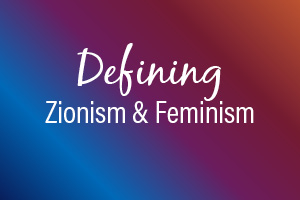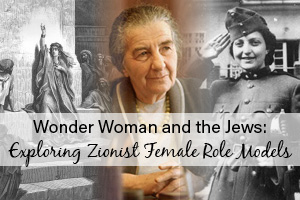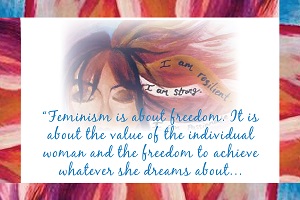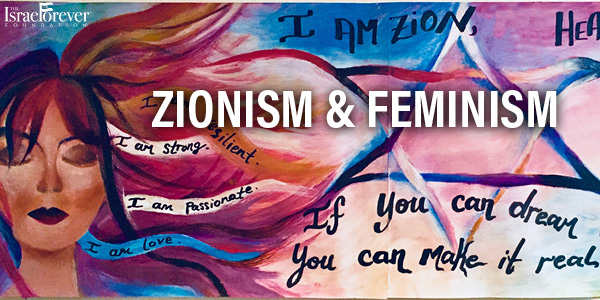My Liberation is Bound With Yours
by Sophie Leib-Neri
Intersectionality seeks to show that my liberation is bound with yours - but when people make assumptions and isolate different identities, they fail to understand the beauty behind embracing identities that differ from their own.
Intersectionality was first conceptualized in relation to the feminist movement, in response to the exclusion of black women from the movement. This led to the conclusion that the forms of oppression experienced by white middle-class women were different from those experienced by black, poor, or disabled women. While intersectionality works to unite women with the goal of liberating all women, in practice, the combatting identities form an exclusionary space.
I believe that it is important to find ways to connect over similar identities and share our struggles as part of the same oppressed group. Intersectionality creates a space where this is easy to do - trying to connect based on our similarities. Yet, I question whether intersectionality leads to the assumptions of certain identities and people choosing a side of argument they don’t really understand.
The recent example of the Chicago Dyke March illustrates the problem with intersectionality. The Chicago Dyke March has explicitly declared itself to be an anti-Zionist organization. They’ve added this identity in addition to considering themselves to be anti-racist and anti-violent as well as seeking to combat violence against the LGBTQ+ community. Last year’s march erupted in a controversial debate over their insistence that the identities of three marchers, who identified as Jewish, Zionist, and LGBTQ+, could not intersect.
Who decided that these are combatting identities?
So what happened?
The three women were toting a rainbow pride flag emblazoned with the Jewish star. Other march attendees complained that the flag made them feel uncomfortable and, as the march was supposedly non-political and the Star was deemed to have political connotations, the women were asked to leave.
The Chicago Dyke March expresses its disapproval of violence and discrimination against different sexual identities and yet hypocritically uses these exact tactics against those of a different identity. The justification of kicking the three women out of the march in 2017 for “making people uncomfortable” sounds like the rhetoric used in the past to suppress the public expression of different sexual identities. Ironically, a march that works to promote greater acceptance of different identities, is firmly rejecting an identity that they clearly do not understand.
This is not about politics, but rather the opposite. This is a plea to accept all identities whether they are similar or different from your own. Accept these identities, not as a personal attack, but as someone else’s truth.
Decisions such as those made by the Chicago Dyke March Collective inherently end a discussion about intersecting identities that are all ultimately individually fighting for recognition. The path to greater societal acceptance should not be paved over the voices of other subjugated groups. The Chicago Dyke March has recognized this belief in terms of racism, yet has decided to draw a line in the support of Israel, in favor of supporting Palestine. When the issue is freedom and human rights there should be no conflict between the two as all people are endowed with the same rights.
Political lines are a matter for debate but, since when is the right for any nation to express their pride in their heritage and stand up for their right to life a political issue? Last year LGBTQ+ women who marched with a Pride flag that signified that they are also Jewish were marginalized because the Jewish star was deemed political. They were not marching with Israeli flags. They were Pride flags. This year the March considered it completely acceptable and even laudable to march with Palestinian national flags - a highly charged political statement (which is aside from the fact that this statement makes little sense in the context of the Dyke March considering that the LGBTQ+ community has no freedoms in Palestinian controlled territories).
Intersecting identities pose a serious conundrum in today’s political and social climate that seeks to categorize people into right wing and left wing. Our identities are complex iterations of personal beliefs and affiliations. Feminism is not exclusive to liberal or conservative political ideologies. In the same sense, it is not limited to certain religions or social alignments. Ultimately, every women’s suppression is inextricably linked across countries, cultures, and religions.
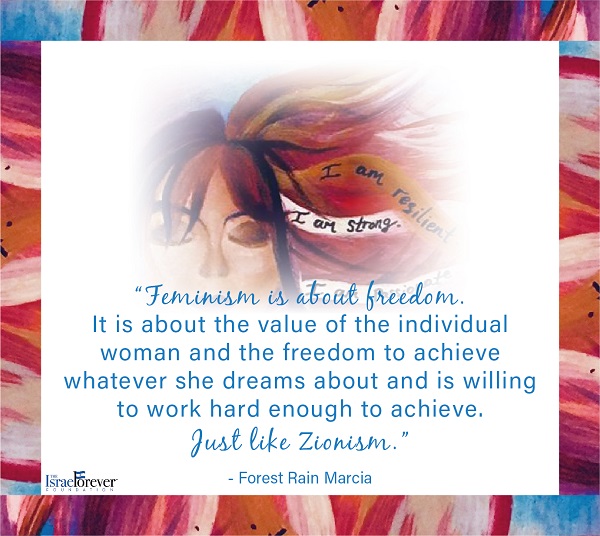
The fight for liberation of one group is a fight for greater acceptance in all groups. The exclusion of voices from the table only leads to greater ignorance and miscommunication amongst parties. There is no possible way to agree with every belief or identity represented in our world, but there is a way to hear, listen, and understand these identities. Differences in identity should be heard, especially amongst those that share one common identity. By uniting through our similarities, there can be a greater appreciation for our differences.
I believe my liberation is bound with yours. That’s why I am interested in finding the greatest uniters rather than focusing on what divides us. I don’t want to create an “us” vs “them” paradigm, I want to bring as many people as possible together to achieve our shared goal - a world with greater freedoms for all.

Sophie is a rising junior at Washington University in St. Louis studying political science, leadership and strategic management, and philosophy. Originally from Chicago, this is her first time in Israel. In addition to her time at the Israel Forever Foundation, she will also be working in the Knesset for MK Michal Biran.

